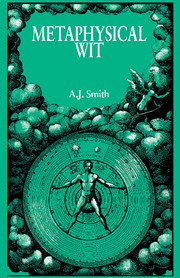Summary
The double perspective of Quevedo's wit catches just the mode of self-awareness which the Jacobean dramatists stage as a drastic confrontation between vitality and corruption, or pose more intimately in the language itself in the ironic intensification of threatened sentience:
Ay, but to die, and go we know not where;
To lie in cold obstruction, and to rot; …
Measure for Measure, 3.1.119–30Quevedo's witty interchanges of heat and ashes parallel Webster's staging of death, Middleton's macabre word-juggling, Tourneur's mordant collocations of lust and bare bone. To take life for an unintelligible spasm and hold it in pawn to a momentary urge or a breath is to share Quevedo's insight:
Are lordships sold to maintain ladyships,
For the poor benefit of a bewildering minute?
Why does yon fellow falsify highways,
And put his life between the judge's lips,
To refine such a thing…?
Tourneur, The Revenger's Tragedy, 3.5.73–7Such writings convey in common a felt sense of not being. They apprehend death itself in the senses.
Shakespeare's theatrical language dramatises a more ample play of consciousness, realising in gesture and action a habit of thinking which is rooted in organic life. The fusion of feeling, act and idea in the texture of the writing peculiarly renders a condition of full sentience in which passions are apprehended with metaphysical urgency, metaphysical issues experienced in bodily impulse:
When I have plucked thy rose
It needs must wither. I'll smell it on the tree.
O balmy breath, that dost almost persuade
Justice to break her sword!
Othello 5.2.13–17- Type
- Chapter
- Information
- Metaphysical Wit , pp. 106 - 241Publisher: Cambridge University PressPrint publication year: 1992



